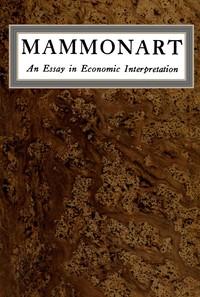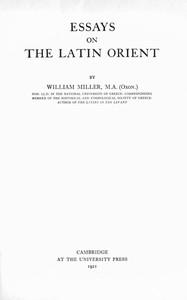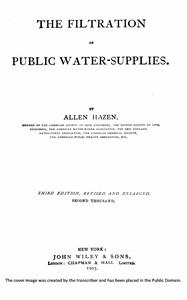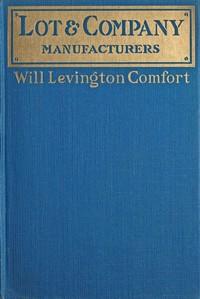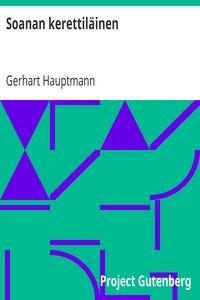|
|
Read this ebook for free! No credit card needed, absolutely nothing to pay.Words: 88939 in 27 pages
This is an ebook sharing website. You can read the uploaded ebooks for free here. No credit cards needed, nothing to pay. If you want to own a digital copy of the ebook, or want to read offline with your favorite ebook-reader, then you can choose to buy and download the ebook.

: Mammonart: An essay in economic interpretation by Sinclair Upton - Literature History and criticism Theory etc.; Economics and literature; Arts and society@FreeBooksThu 08 Jun, 2023 d not get bread; and through Lady Hamilton's hold on Nelson, he was led to use the British fleet in furtherance of Neapolitan royalist conspiracies, and in defiance of orders from home. But you don't find any of that in Southey! You are told that when Nelson returned to England, he "separated from" his wife; the fact being that his wife left him because he insisted on bringing the "vamp" lady to live in the home with her! In view of these details, I asked Americans to consider whether it would not be better for their children to read about the democratic English heroes, such as John Milton and Oliver Cromwell and Isaac Newton and John Ruskin and Keir Hardie? THE FEAR THAT KILLS One more, and we are done with the melancholy tale of the poets who ran away from the French revolution. William Wordsworth was born in 1770, his father being lawyer to a noble earl who robbed him of five thousand pounds. That may possibly have accounted for some of the early rebellious emotions of the poet. He was graduated from Cambridge at the age of twenty-one, and went to France at the height of the revolutionary fervor. He has told us in his verse of the stirrings which then possessed him; to be young at such a time "was very heaven." But the poet, in telling us about his experiences in France, left out a vital part thereof. The story had to wait a century and a quarter before a professor of Princeton University dug it out. While Wordsworth was abroad he carried on an affair with a young French girl of good family. She bore him a daughter, but he did not marry her; instead, he came back to England, and lived most piously with his sister, and became a preacher of the proprieties. We can understand how, looking back on France, it seemed to him a land of license, meriting stern rebuke from a British moralist. His first book of poems, "Lyrical Ballads," was published in 1798. He had by then become a reactionary in religion and politics, but in poetry he was an innovator, because he dealt with the simple, every-day feelings of his own heart, and with the peasant people of his neighborhood. He was mercilessly ridiculed by the critics, and retired into himself, to live a frugal life upon an income of a hundred pounds a year, bequeathed to him by a well-to-do friend. In the course of time the British ruling class realized that there was no real harm in this nature-mystic, and at the age of forty-three he received a salary as a distributor of stamps; nine years later an annuity was allowed him, and a year after that he became poet laureate. He passionately opposed every political reform, and composed a series of "Ecclesiastical Sonnets," dealing with the church rigmarole of England; also a pamphlet bitterly attacking the proposition to run a railroad into the country of his dreams. At the age of seventy-five we find him, white-haired and venerable, kneeling, in the presence of a large assembly, to kiss the hand of an extremely dull young girl by the name of Victoria. Wordsworth was one of the teachers of my youth, and I do not want to be unjust to him because he turned Tory before thirty. What we have to do is to understand him, and to draw a moral from him. The worship of Nature is like the worship of God; as a rule it is a reactionary influence, cutting one off from real life; but here and there it may be a source of inner energy, enabling a man to stand for his own convictions against the world. To Wordsworth in his early days Nature was that, and no poet has uttered in more noble and beautiful language this sense of oneness with the great mother of all life. His writing at its best is as beautiful, and also as sound, as anything in English. But here is the point to get clear: practically all this poetry was written in eight years; you might count on your ten fingers and ten toes all the lines that Wordsworth wrote after the age of thirty-five which are worth anyone's while to read. In my youth, when I was studying poetry, it was my habit to go through a poet, beginning with the first page of volume one and ending with the last page of volume five, or ten, or whatever it might be. In the case of Wordsworth, it was volume twelve, and he was the one poet with whom I fell down. The "Ecclesiastical Sonnets" finished me; I testify that of all the dreary drivel in the world's literature, this carries the prize. There were two men in Wordsworth: the instinctive man, who experienced overwhelming feelings, and the conscious man, who was terrified by those feelings. This is no guess of mine, but something which Wordsworth himself explained over and over again: "My apprehensions come in crowds.... My former thoughts returned: the fear that kills.... Me this unchartered freedom tires; I feel the weight of chance desires." So the Wordsworth who believed in the Tory party and the Thirty-nine Articles put the screws on the poet, and not merely the emotions, but the brains of a great genius withered before the age of forty. The cases of Coleridge, Southey and Wordsworth suggest the inquiry: is it possible for a great poet to be a conservative? In old times, yes; for the conservatives then had something to say for themselves. But in the last hundred years the meaning of the class struggle has become so apparent, the consequences of class exploitation have become so obvious, that a man who fails to see them must be deficient in intelligence, a man who fails to care about them must be deficient in heart and conscience; and these are things without which great poetry cannot be made. THE FIRST LORD OF LETTERS Fortunately not all the poets of England let themselves be frightened into reaction by the French revolution. Free books android app tbrJar TBR JAR Read Free books online gutenberg More posts by @FreeBooks
: Essays on the Latin Orient by Miller William - Greece History; Balkan Peninsula; Latin Orient@FreeBooksThu 08 Jun, 2023

: The filtration of public water-supplies Third edition revised and enlarged. by Hazen Allen - Water-supply; Filters and filtration@FreeBooksThu 08 Jun, 2023
|
Terms of Use Stock Market News! © gutenberg.org.in2025 All Rights reserved.

